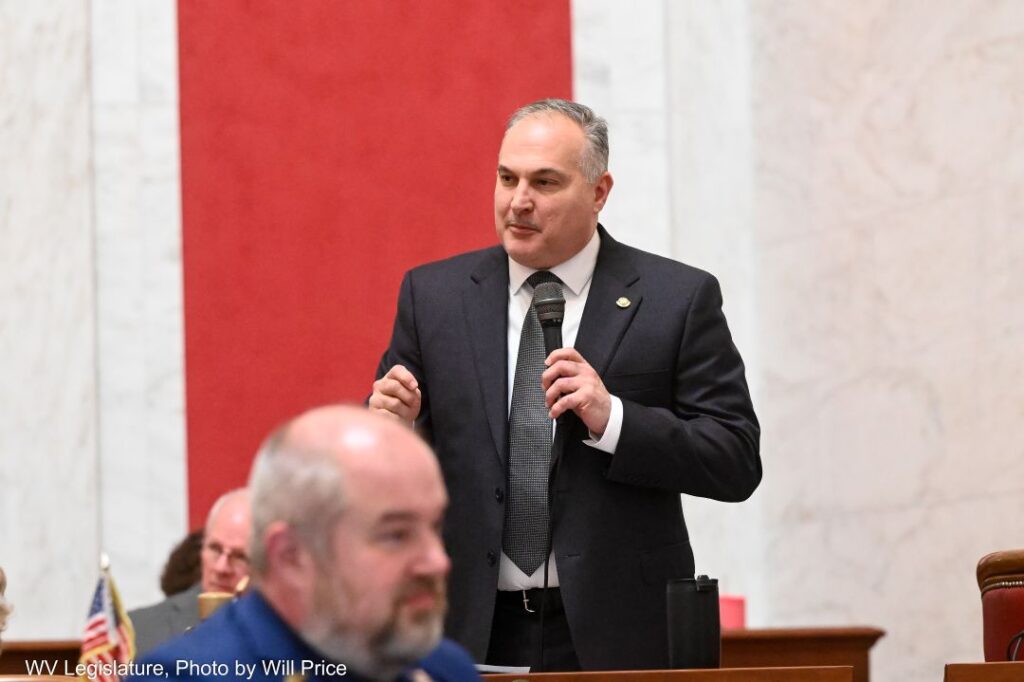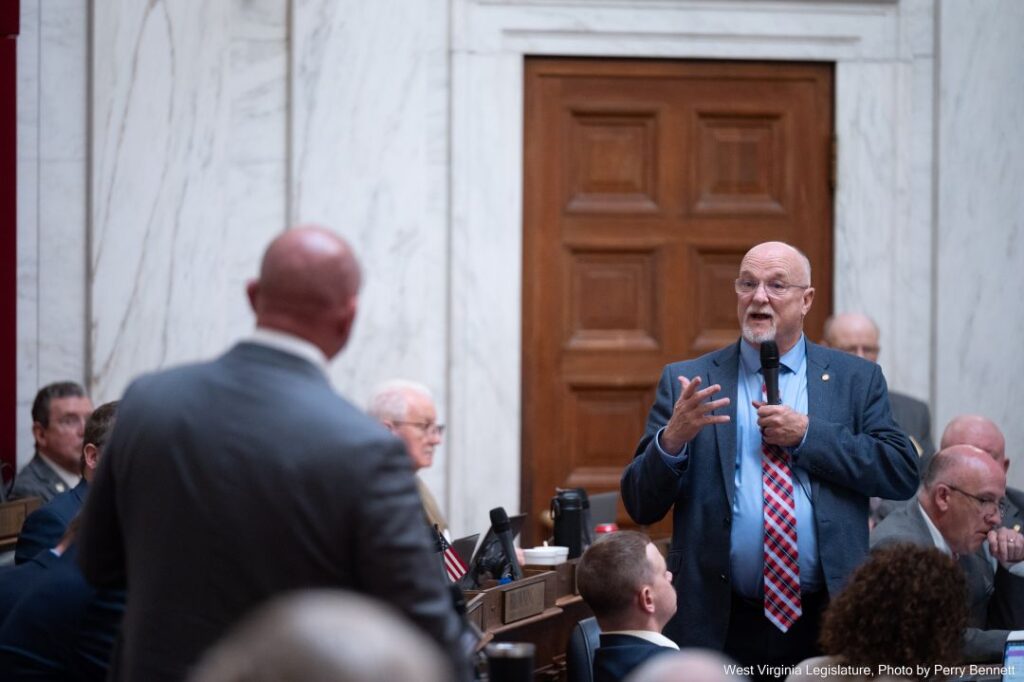Jina Belcher, executive director of the New River Gorge Regional Development Authority (NRGRDA), hailed the state’s enactment of a bill that land reuse agencies say is crucial to their mission of returning vacant, abandoned or dilapidated properties to productivity.
The bill, SB 538, cements the right of first refusal for land reuse agencies and municipal land banks to purchase tax-delinquent properties before they are sold at a public auction to unknown buyers. It was signed into law by Governor Patrick Morrissey following the 2025 legislative session.
Belcher says the right of first refusal allows land reuse agencies to take a strategic approach when acquiring blighted property that they believe can be converted into housing, commercial or industrial businesses or some type of community use, such as a park.
“We’re very strategic in which ones we select because we want them to be put back into reuse and be taxable again,” says Belcher, who is also chair of the Fayette County Land Reuse Agency (LRA), which was established in the fall of 2023 and is the state’s first county-based LRA.
Andrew Davis, manager of strategic redevelopment; Jozy Moore, policy and government outreach coordinator; and Amy Showalter, community asset assistance department lead, all with NRGRDA, recently attended the Mountain State Land Use Summit in Pipestem where they engaged with land bank experts and community leaders committed to mindful land use strategies and to support ongoing conversations around land banking efforts in the NRGRDA’s region.
Land reuse agencies were granted the right of first refusal by legislators in 2017 but that provision was set to expire or sunset on July 1, 2025.
SB 538 eliminates that sunset clause and adds provisions to ensure that blighted properties are kept out of the hands of bad actors who may not have any immediate plans to fix up the property or have previously been delinquent on property taxes.
The final provision of the bill requires the West Virginia Land Stewardship Corporation to submit an annual report to the Joint Committee on Government and Finance detailing the activities of the land reuse agencies and municipal land banks from the preceding calendar year.
Senator Brian Helton, the lead sponsor for SB 538, says the bill protects counties and cities, particularly in rural areas.
“It just gives an opportunity for cities and counties to resolve dilapidated properties,” Helton says. “There’s also a lot of instances of lands being held that could be used for economic development that just gets idle. I think it’s a really good bill because it takes it down to the most local level of government for them to deal with problem areas, and it’s good for the community. It’s good for economic development.”

Delegate Bill Roop sponsored a similar version of the bill on the House side, and he supported the bill because it gives local governing bodies the opportunity to not only clean up vacant and dilapidated properties but return them to productive use.
He added that most counties and cities have laws related to addressing dilapidated and vacant buildings, which can be further enhanced if the area also has a land bank.
“It takes a long time to get through the dilapidated building process. Plus, once we do it, we put a lien on the property and it’s just sitting there,” Roop says. “Whereas now, not only can we purchase it at the land sale when it falls into disrepair, we can clean it up and then get it turned right back around and put it back on the tax rolls. It’s just another economic development tool for the different governmental agencies to help throughout the area.”

After sponsoring the bill and learning more about how land banks across the state are utilizing the right of first refusal improve communities, Roop, who is also the county attorney for Raleigh County, says he began crafting an ordinance to create a LRA there.
In West Virginia, LRAs must be tied to municipality or county government and are established through the passage of an ordinance.
Roop says the ordinance to create an LRA in Raleigh County should be ready to present to the Raleigh County Commission before the end of June.
During a meeting of the House Government Administration Subcommittee while the session was taking place, Belcher spoke with legislators about how LRAs use the right of first refusal as a tool for economic development opportunities.
“In Southern West Virginia where there are not a lot of available properties for commercial and economic development, we feel the land reuse agencies serve a role in supporting the economic development authorities in taking acquisition of those properties through the first right of refusal and working with the economic development authority for strategic redevelopment of those properties,” Belcher says.
This approach aligns with the NRGRDA’s mission to initiate, facilitate and support economic and community development efforts within Fayette, Nicholas, Raleigh and Summers counties.
Since the creation of the Fayette County LRA, Belcher says they have executed the right of first refusal twice. She added that they’ve also acquired properties through the state auditor’s office with properties labeled “No-Bid,” meaning the properties have been put up for public action and received no bids.
Once the properties are required, Belcher says the NRGRDA assists the LRA in determining the best redevelopment strategy for the property.
“There are three scenarios we are looking at in Fayette County specifically,” Belcher says. “One is to prioritize housing development, so looking at sites that maybe have a dilapidated structure on them that we can work with the county to demolish and clean up and then market to a developer to build a new home.”
If the LRA can acquire multiple adjacent properties, Belcher says the second scenario would be looking at whether those properties can be marketed for potential industrial or commercial development to spur job creation. The final option would be to utilize the property as a space for the community.
By using a targeted approach to tackle vacant, abandoned or dilapidated properties and having the opportunity to purchase properties before a public auction, Belcher says they are able to find more success in converting properties back to productive and taxable use.
The right of first refusal for land reuse agencies is spelled out in West Virginia Code 31-18E-9. When it was initially approved by West Virginia Legislators in 2017, it came with an expiration date of July 1, 2020. Prior to the 2020 expiration date, legislators approved an extension of the sunset clause to its current expiration date, July 1, 2025.
SB 538 amends West Virginia Code 31-18E-9 to remove the sunset clause and make the first refusal right permanent for land reuse agencies.








